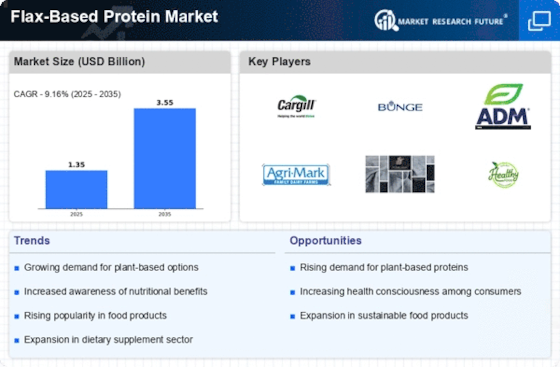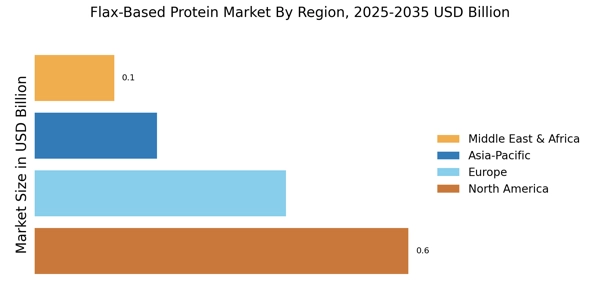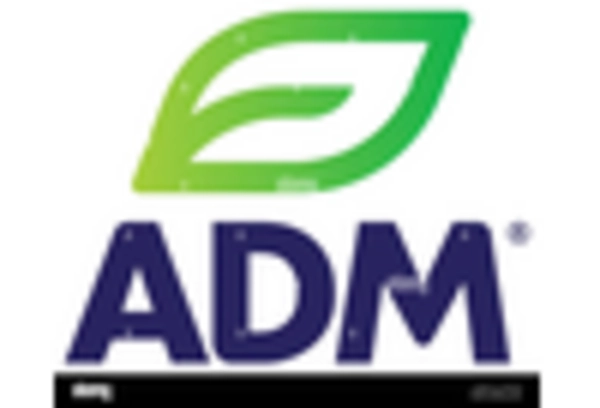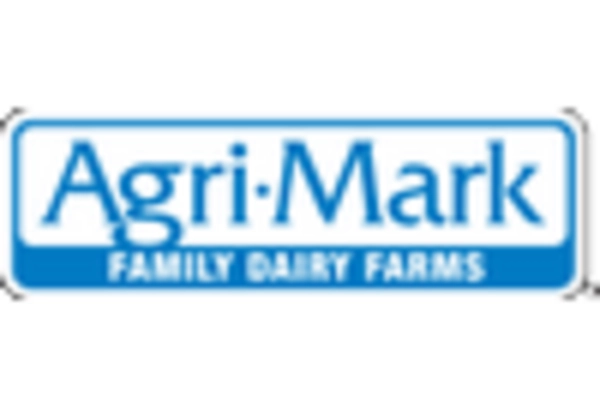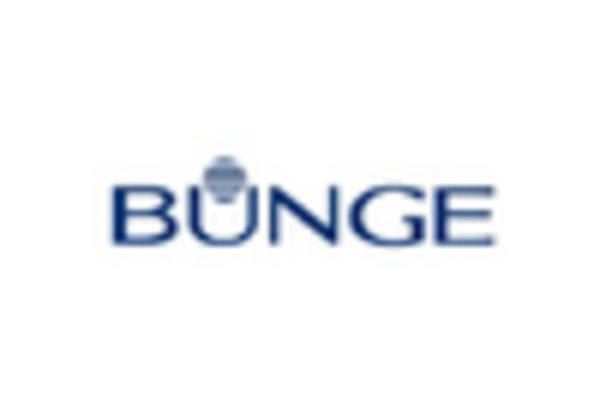Innovations in Food Products
The Flax-Based Protein Market is witnessing a wave of innovation as manufacturers develop new products that incorporate flax protein. This trend is particularly evident in the snack and beverage sectors, where flax-based protein is being integrated into protein bars, smoothies, and plant-based dairy alternatives. Market data suggests that the introduction of innovative products is a key driver of growth, with the protein bar segment alone expected to reach a valuation of over 1 billion dollars by 2026. These innovations not only cater to the rising demand for plant-based proteins but also enhance the versatility of flax-based protein, making it an attractive ingredient for a variety of applications. As companies continue to experiment with formulations, the Flax-Based Protein Market is likely to expand, appealing to a broader audience seeking convenient and nutritious options.
Increasing Health Consciousness
The Flax-Based Protein Market is experiencing a surge in demand driven by a growing awareness of health and wellness among consumers. As individuals increasingly prioritize nutritious diets, the appeal of flax-based protein, known for its high omega-3 fatty acid content and fiber, becomes more pronounced. This trend is reflected in market data, which indicates that the plant-based protein segment is projected to grow at a compound annual growth rate of approximately 8% over the next five years. Consumers are actively seeking alternatives to animal proteins, and flax-based protein offers a compelling option that aligns with their health goals. The emphasis on clean labels and natural ingredients further propels the market, as consumers gravitate towards products that are perceived as wholesome and beneficial for overall health.
Growing Interest in Functional Foods
The Flax-Based Protein Market is benefiting from the rising interest in functional foods, which are products that provide health benefits beyond basic nutrition. Flax-based protein is recognized for its potential to support heart health, improve digestion, and enhance overall well-being, making it an attractive option for health-conscious consumers. Recent studies suggest that the functional food market is expected to grow at a rate of 7% annually, indicating a robust demand for products that offer added health benefits. This trend is particularly relevant for the Flax-Based Protein Market, as it positions flax protein as a key ingredient in functional food formulations. As consumers seek out foods that contribute to their health goals, the demand for flax-based protein is likely to increase, further driving market growth.
Rising Vegan and Vegetarian Populations
The Flax-Based Protein Market is significantly influenced by the increasing number of individuals adopting vegan and vegetarian lifestyles. As more consumers choose plant-based diets for ethical, environmental, or health reasons, the demand for flax-based protein is expected to rise. Recent statistics indicate that the number of vegans has increased by over 300% in the last decade, highlighting a substantial shift in dietary preferences. This demographic shift not only drives the demand for flax-based protein but also encourages food manufacturers to diversify their product offerings. The Flax-Based Protein Market stands to benefit from this trend, as it provides a sustainable and nutritious protein source that aligns with the values of health-conscious consumers. The growing acceptance of plant-based diets is likely to further solidify the position of flax-based protein in the market.
Sustainability and Environmental Awareness
The Flax-Based Protein Market is increasingly shaped by consumer preferences for sustainable and environmentally friendly products. As awareness of climate change and environmental degradation grows, consumers are gravitating towards plant-based proteins, which are perceived as more sustainable than traditional animal-based proteins. Flax, being a low-impact crop that requires fewer resources to cultivate, aligns well with these sustainability goals. Market data indicates that the plant-based protein market is projected to reach a valuation of 27 billion dollars by 2027, driven in part by this shift towards eco-conscious consumption. The Flax-Based Protein Market is well-positioned to capitalize on this trend, as it offers a protein source that not only meets nutritional needs but also supports environmental sustainability. This dual appeal is likely to enhance the market's growth prospects.


